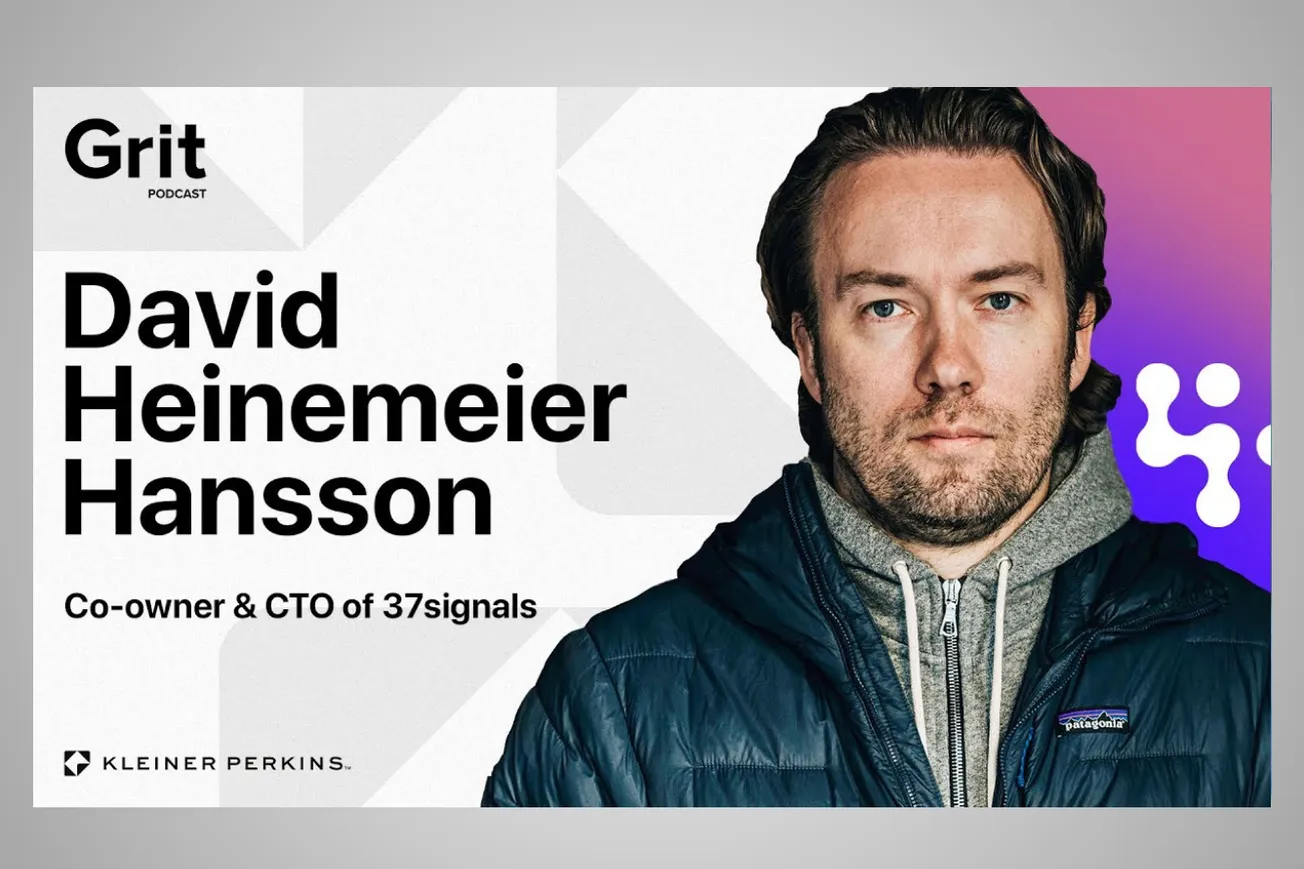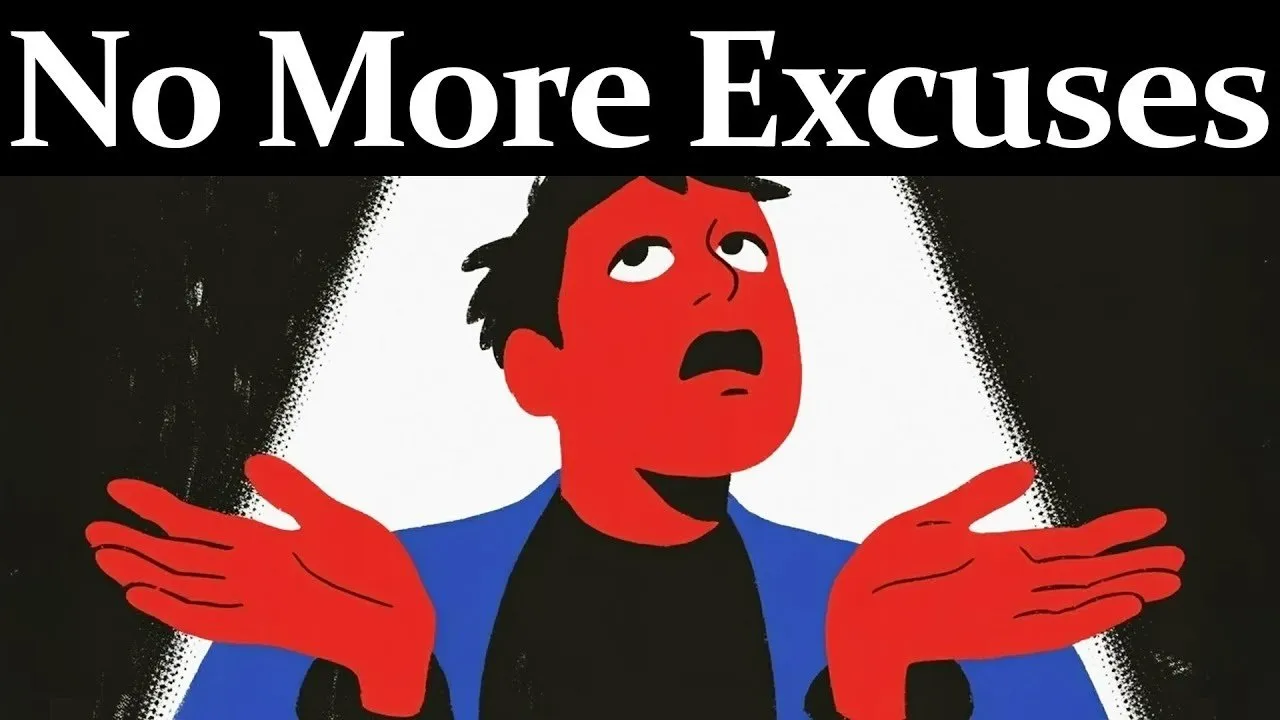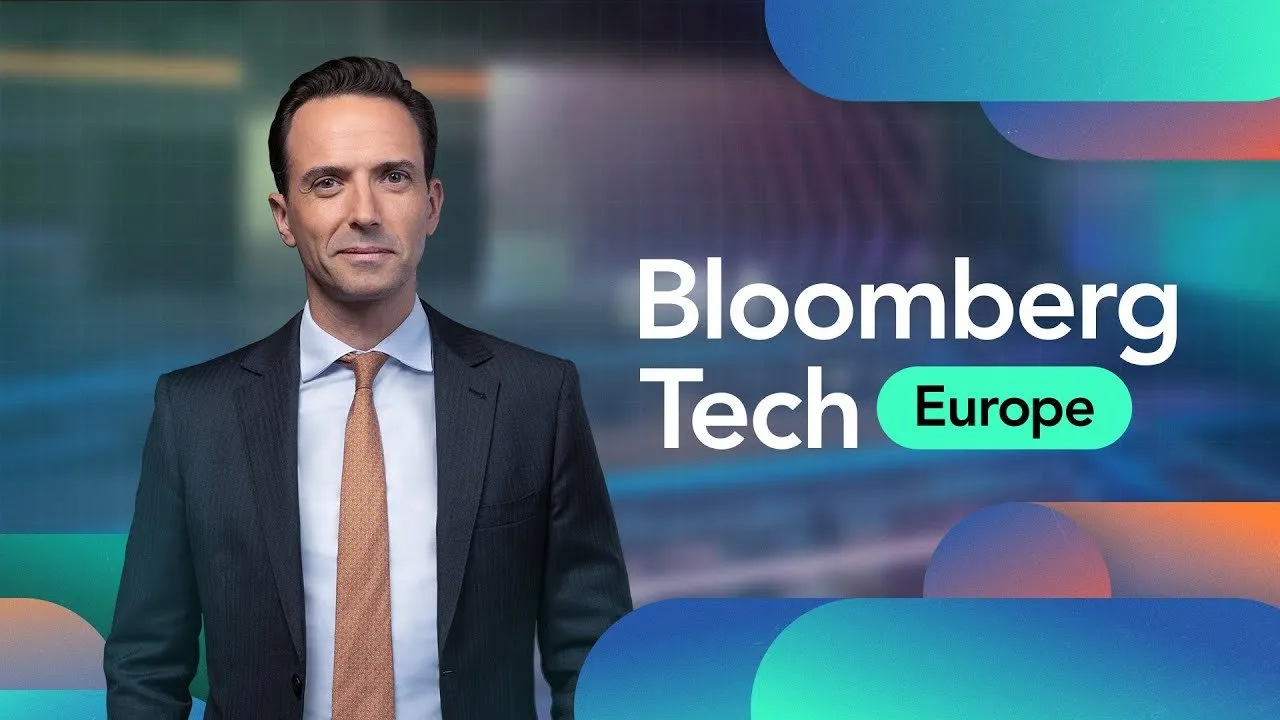Table of Contents
David Heinemeier Hansson built 37signals into a $30M business and created Ruby on Rails—used by Airbnb, GitHub, and Shopify—by organizing his entire life around three flow states: racing sports cars at Le Mans, coding, and writing, proving that optimizing for personal fulfillment can create extraordinary business outcomes.
The creator of Ruby on Rails and CTO of 37signals has spent 20 years proving that you don't need venture capital, full-time managers, or 80-hour weeks to build a successful technology company—you just need to eliminate everything that prevents flow states and double down on what actually works.
Key Takeaways
- DHH organizes his life around three flow states—Le Mans racing, programming, and writing—arguing that optimizing for personal fulfillment creates better business outcomes than traditional productivity methods
- 37 signals operates with zero full-time managers among 50 employees, using part-time management that scales with actual needs rather than creating artificial work to justify full-time roles
- Modern work culture is "optimized to prevent flow states" through open offices, meeting-heavy calendars, and constant interruptions that make deep work impossible
- Bootstrapping enables organizational design freedom that venture capital eliminates, allowing 37signals to work 32-hour weeks in summer and maintain complete creative control
- Material wealth beyond $10 million provides diminishing returns, with the "best things in life" (family, flow states, meaningful work) remaining free while "second best things are very expensive"
Timeline Overview
- 00:00:00–01:17 — Intro: Setting up the conversation about DHH's unique approach to business and life optimization
- 01:17–07:03 — 24 Hours of Le Mans: Explaining the prestigious endurance race, G-forces, physical training, and why it provides the ultimate flow state experience
- 07:03–11:22 — Amateurs in sports car racing: How enthusiast funding allows non-professional drivers to compete at the highest levels through financial contribution
- 11:22–16:11 — Flow and meditation: Comparing race car driving to meditation and programming as different portals to accessing flow states and complete mental immersion
- 16:11–19:17 — Mundane bulls**t: Critiquing modern work culture's tendency to prevent flow states through constant interruptions and meaningless activities
- 19:17–22:20 — Optimizing for flow: DHH's philosophy of arranging life around flow-state activities and why most people should pursue this approach
- 22:20–25:45 — Calendars and open offices: How modern workplace design systematically prevents the uninterrupted time necessary for deep work and creativity
- 25:45–30:29 — Full-time managers: 37signals' zero full-time manager policy and why part-time management scales better with actual organizational needs
- 30:29–33:55 — Small companies: The advantages of staying at 50 employees versus scaling to hundreds or thousands in terms of decision-making and culture
- 33:55–42:16 — Selfishness and work: Defending the "selfish" optimization of work-life balance and how it creates better outcomes for everyone involved
- 42:16–47:54 — Taking other people's money: Why venture capital eliminates organizational design freedom and forces companies into conventional playbooks
- 47:54–52:13 — Temptation: The psychology of venture capital temptation and how even successful bootstrapped companies face pressure to raise money
- 52:13–58:00 — Moderately rich: Defining "moderately rich" as $10 million and explaining why additional wealth provides diminishing returns on happiness
- 58:00–01:01:43 — "The day I became a millionaire": DHH's personal experience with sudden wealth and the realization that material things don't change core satisfaction
- 01:01:43–01:06:57 — The hassle: How expensive possessions create more problems than pleasure, with maintenance and worry offsetting material benefits
- 01:06:57–01:11:50 — Achieving the dream: Discussion of how achieving material goals (houses, cars) often creates disappointment rather than fulfillment
- 01:11:50–01:18:19 — Shopify and Tobias Lütke: Comparing different paths to success and why DHH joined Shopify's board to learn from alternative approaches
- 01:18:19–01:22:30 — Trade-offs and downsides: Acknowledging that optimizing for lifestyle over impact means accepting smaller scale and influence
- 01:22:30–01:26:09 — The impact of Ruby on Rails: How creating open-source software for personal satisfaction ended up powering much of the modern web
- 01:26:09–01:29:54 — "I love being wrong": DHH's philosophy of embracing new information and changing opinions as a form of intellectual improvement
- 01:29:54–01:34:33 — DEI and illegal drugs: Examples of major opinion changes based on observing real-world experiments and updating mental models
- 01:34:33–01:35:23 — Not hiring: Current hiring status at 37signals and where to find opportunities
- 01:35:23–01:38:29 — What "grit" means to David: Redefining grit as persistence that enables deep exploration of any subject until it becomes interesting
- 01:38:29–END — Outro: Closing thoughts and appreciation for the conversation
The Flow State Trinity: Racing, Coding, and Writing
David Heinemeier Hansson has built his entire life around accessing three specific flow states that provide complete mental immersion: racing sports cars at Le Mans, programming in Ruby, and writing. This isn't casual hobby pursuit—it's a deliberate optimization strategy that he believes everyone should adopt for both personal satisfaction and professional success.
The 24 Hours of Le Mans represents the pinnacle of this philosophy. As one of the world's most prestigious endurance races, it demands complete mental presence during 2-4 hour driving stints at speeds exceeding 200 mph. The physical demands include sustaining 2.5 G-forces through corners—enough to make untrained necks give out after just three laps.
"When you're in that car and a turn is coming up and you're about to hit exactly 2.5 Gs not 2.2 then you're going way too slow not 2.7 then you're going too fast and you're going to end up in the wall 2.5 exactly because that is the mathematical equation for what those tires can hold you don't think about anything else."
This level of precision creates what DHH calls "turn-key" flow state access. Unlike meditation, which he struggles with, or programming, where flow depends on having interesting problems, racing provides guaranteed immersion. The stakes are high enough—crashing is expensive and dangerous—that complete focus becomes automatic rather than effortful.
The parallel to programming emerges in the mathematical precision required. Just as race car driving demands exact G-force calculations, programming requires precise logical thinking that excludes all other mental noise. Both activities share the characteristic of being "just beyond your grasp"—difficult enough to require stretching but achievable with focused effort.
Writing completes the trinity as another pathway to complete mental absorption. DHH writes primarily for himself, viewing it as a tool for thinking and improvement rather than external communication. This self-directed approach removes the pressure and ego involvement that often prevents flow states in creative work.
The Anti-Flow Design of Modern Work
DHH's critique of contemporary workplace culture centers on how organizational structures systematically prevent the flow states that produce valuable work. He argues that most companies inadvertently design environments that make deep work impossible, then wonder why productivity and employee satisfaction remain low.
The modern calendar represents the primary culprit. DHH describes typical knowledge worker schedules as "designed by someone who knew everything about flow states to prevent those from happening." Meetings scattered throughout the day create fragments of time too small for meaningful work while destroying the mental preparation necessary for complex thinking.
"If you just look at most people's weekly calendar it is like it was designed by someone who knew everything about flow states to prevent those from happening. Here's a meeting at not 9:00 when you arrive I'll give you 45 minutes where your brain can just waste its cycles going over email because it knows that you can't actually enter the Flow State in 45 minutes."
Open offices compound this problem by adding constant visual and auditory interruptions to already fragmented schedules. DHH calls them "literally the worst environment known to humans for getting access to the Flow State" and compares them to environments designed by "Dr. Evil trying to prevent people from getting access to that flow State."
The solution requires recognizing that flow states typically need 20-30 minutes of setup time and several hours of uninterrupted duration. DHH's own calendar rarely contains more than three items per week, and he deliberately schedules those during lunch to minimize daily interruptions.
This approach reflects a fundamental philosophical difference about work quality versus quantity. While most organizations optimize for appearing busy, DHH optimizes for the small percentage of time when extraordinary work actually happens. He estimates that 80-90% of valuable output comes from flow state moments, making everything else essentially irrelevant.
Zero Full-Time Managers: The Scalable Resource Revolution
Perhaps 37signals' most radical organizational innovation involves eliminating full-time management positions entirely. Among their 50 employees, no one—including DHH and co-founder Jason Fried—serves as a full-time manager. Instead, management happens part-time based on actual organizational needs rather than arbitrary role definitions.
The logic behind this approach addresses a fundamental problem with traditional management structures: if you hire someone for 40 hours of weekly management, you'll get 40 hours of management activity whether the organization needs it or not. When actual management needs only require 7 hours, the remaining 33 hours get filled with unnecessary meetings, processes, and interruptions.
"If a week comes by and you only need seven hours of management do you know what you're going to get? You're going to get 33 hours of bullshit inflicted onto everyone else in the company. That's how management works if you cannot exhaust the resource, the resource will come up with ways to justify itself."
Part-time management scales naturally with organizational demands. During calm periods, DHH might spend zero hours on management tasks, allowing him to focus on programming or writing. During busy periods, he can dedicate 40-50 hours to management without having underutilized personnel during normal operations.
This model requires hiring people who contribute individual value beyond coordination responsibilities. DHH remains connected to actual product development, Jason Fried stays involved in design, and other leaders maintain hands-on expertise in their domains. This prevents the disconnection that often develops when managers become purely administrative.
The approach works because 37signals deliberately maintains a size where such coordination is possible. DHH acknowledges that this model likely breaks down at larger scales, pointing to companies like Zappos that struggled with self-organizing structures. However, he argues that staying at optimal size provides more value than growing beyond manageable complexity.
The Bootstrap Advantage: Freedom vs. Scale
DHH's advocacy for bootstrapping stems from direct experience with the constraints that venture capital imposes on organizational design. Taking external money forces companies into conventional playbooks that eliminate the freedom to experiment with alternative structures like zero full-time management or 32-hour summer work weeks.
"By the time you take other people's money you no longer control your ability to design the organization as you see fit. You will absolutely have to design it in some variation of the playbook that already exists and that investors are comfortable with."
The irony, according to DHH, is that software represents the industry most suited for bootstrapping due to zero marginal costs and the possibility of 10x productivity differences between developers. Yet venture capital concentrates heavily in software, funding companies that could theoretically grow without external capital.
37signals demonstrates the alternative path. Starting with web design consulting, they gradually built email marketing tools for clients before launching Basecamp. The transition from services to products happened organically, funded by customer revenue rather than investor capital. This approach took longer but preserved complete decision-making autonomy.
The financial outcomes of bootstrapping can match or exceed venture-backed alternatives when extended over longer timeframes. DHH points out that running a profitable software company for 20 years can accumulate wealth comparable to successful exit outcomes, while maintaining ownership and operational control throughout the journey.
However, bootstrapping requires different psychological dispositions and risk tolerances. Founders must accept slower growth, smaller immediate payoffs, and the possibility of never achieving venture-scale outcomes. DHH argues these tradeoffs are worthwhile for people whose primary goals involve creative freedom rather than maximum wealth accumulation.
The $10 Million Ceiling: Where Money Stops Mattering
DHH's perspective on wealth comes from direct experience with both sides of the equation—sudden wealth through Jeff Bezos's 2006 investment and gradual accumulation through business profits. His conclusion challenges both poverty and extreme wealth as optimal states, advocating for what he calls "moderately rich" status around $10 million.
The transformation happened literally overnight when Bezos's check cleared, taking DHH from roughly $20,000 in savings to millions in net worth. The initial euphoria lasted exactly one week before reality set in: his daily activities and sources of satisfaction remained unchanged.
"After I bought the yellow Lamborghini and a bigger TV and a few other things I realized oh okay I'm still going to go back to spending eight hours in front of the computer because I really like programming Ruby. I really like making open source software. I enjoy expanding our products."
This realization led to a broader framework about material satisfaction. The "best things in life are free"—family relationships, meaningful work, flow states—while the "second best things are very expensive." The gap between these categories is so large that optimizing for expensive second-tier goods often means sacrificing first-tier experiences.
The $10 million threshold represents the point where financial worry essentially disappears. Below this level, money solves real problems around housing, healthcare, education, and basic security. Above this level, additional wealth primarily enables lifestyle inflation that creates new forms of dependency and complexity.
DHH's car collection illustrates this principle. He owns several high-end vehicles including Lamborghinis, but acknowledges that 90% of the driving enjoyment comes from much less expensive alternatives. The difference between a Porsche Boxster and a Bugatti Zonda represents maybe 5-10% additional pleasure at exponentially higher cost and complexity.
The Materialist Trap: Why Achievement Disappoints
The conversation between DHH and the interviewer reveals a common pattern among successful people: the things they thought would solve their problems often create new complications. DHH's yellow Lamborghini purchase and the interviewer's real estate acquisition both demonstrate how achieving material goals can feel hollow rather than fulfilling.
DHH describes the Lamborghini experience as genuinely enjoyable but short-lived in its impact. After a few weeks, the novelty wore off, leaving him with an expensive asset that required specialized maintenance, careful parking, and constant worry about theft or damage. The car became a source of hassle rather than pure enjoyment.
"You drive this car for let's say two hours a week that's if you even have a lot of time for driving right? You don't actually use it that much it doesn't change that much. What's interesting is you don't um you're not jumping on the hedonic treadmill."
The interviewer's real estate story follows a similar pattern. Despite saving money his entire life to achieve the "American dream" of homeownership, actually buying property created a cascade of problems, maintenance issues, and ongoing stress. The goal that was supposed to provide security and stability instead became a source of constant concern.
This pattern extends beyond material possessions to career achievements and lifestyle upgrades. Private jets represent a common example among wealthy individuals—the convenience is undeniable, but the dependency can become psychologically troubling. DHH notes that many rich people claim they could give up everything "except the jet," which he views as a form of "stoic failure."
The broader principle involves recognizing that human adaptation means material improvements provide temporary satisfaction before becoming new baselines. The exception involves purchases that directly enable flow states or meaningful activities—race cars for DHH's racing, quality tools for craftspeople, or environments that support deep work.
The Selfishness Defense: Individual Optimization as Social Good
DHH openly embraces what critics call the "selfishness" of optimizing work-life balance around personal satisfaction rather than conventional metrics like company size or market impact. He argues this approach creates better outcomes for employees, customers, and society than traditional growth-focused models.
The Adam Smith comparison proves apt: just as butchers and bakers serve customers through self-interest rather than altruism, DHH's pursuit of flow states and personal satisfaction results in better working conditions for 37signals employees and higher-quality products for customers.
"I'm building this kind of company out of my self-interest and the net effect is that we then build a nice place to work for people including a nice place to work and make products that customers love and that are different from the kind of stuff you would get out of big Tech."
This philosophy extends to hiring and culture. 37signals attracts people who want different things from work than those drawn to high-growth startups. Some employees prefer economic security and work-life balance over equity upside and constant urgency. Others get their sense of community from family, hobbies, or local organizations rather than workplace relationships.
The approach acknowledges that different people have different risk tolerances and life priorities. DHH credits his early startup experiences with teaching him about all-in work cultures, but notes that this approach works better for certain life stages and personality types than others.
However, this selection process creates a specific type of organization rather than a universal solution. 37signals serves customers who value reliability and thoughtful design over cutting-edge features or rapid iteration. The company's impact remains substantial—Ruby on Rails powers many major platforms—but operates at a different scale than venture-backed alternatives.
Ruby on Rails: The Accidental Empire
The story of Ruby on Rails illustrates how DHH's inward-focused ambition can create enormous external impact without that being the primary motivation. He developed the web framework entirely for personal use, driven by programming satisfaction rather than adoption goals or commercial success.
"I'm making Ruby and rails for me. The fact that there are other people who enjoy using it too does bring me satisfaction but it's not the primary one."
Twenty years later, Ruby on Rails powers a substantial portion of the modern web. Half of Y Combinator's exits by market capitalization run on the framework, over 7,000 developers have contributed code to the project, and major platforms like Airbnb, GitHub, Shopify, and Square depend on it for core functionality.
This outcome validates DHH's philosophy about focusing on personal satisfaction rather than external metrics. By optimizing the framework for his own programming pleasure and productivity, he created tools that solved similar problems for thousands of other developers. The inward focus produced better external results than explicitly trying to build for mass adoption.
The same principle applies to his writing and 37signals products. DHH writes primarily to clarify his own thinking and records ideas for future reference. Basecamp and Hey solve productivity problems that he and Jason Fried experience personally. The self-directed approach removes ego and external pressure that often compromise quality.
This framework challenges conventional startup advice about customer development and market research. While understanding customer needs remains important, DHH's experience suggests that creating things you personally find valuable often resonates more broadly than attempting to engineer solutions for abstract market segments.
The Joy of Being Wrong: Intellectual Evolution
Despite his strong convictions, DHH emphasizes that he's "changed my mind on more things in my life in the past four years than any other period that I've been alive." This intellectual flexibility stems from viewing opinion changes as bug fixes rather than embarrassing reversals.
"Every time you're wrong you're fixing a bug. Every time you're wrong you're updating your mental map of the world to be better than it was yesterday and that to me is what's so exciting about being alive."
The framework treats beliefs as hypotheses subject to updating based on new evidence rather than identity markers requiring defense. This approach enables rapid learning while maintaining confidence in current positions based on available information.
DHH cites major opinion shifts on diversity, equity, and inclusion policies as well as drug legalization—both areas where he updated his views based on observing real-world experiments and their outcomes. The opioid crisis served as a particularly clear example of a large-scale policy experiment producing unambiguous results that contradicted his previous libertarian assumptions.
"We run this long run experiment it's been running for over 20 years and the current catastrophe is 100,000 plus Americans every year are dying from getting addicted to opioids. I had to update my mental model oh do you know what this was actually a referendum on whether it would be a good idea that drugs as powerful as opioids should just be available."
This intellectual humility requires distinguishing between core principles and specific applications. DHH's fundamental values around individual freedom and creative work remain consistent, but his understanding of how to implement these values in practice continues evolving based on new information and observed outcomes.
The Grit Paradox: Persistence Enables Interest
DHH's definition of grit differs significantly from popular conceptions that emphasize pure persistence through adversity. Instead, he views grit as the ability to dig deeply enough into any subject that it becomes intrinsically interesting rather than forcing yourself through unenjoyable activities.
"Everything you can imagine to pursue is interesting if you just dig hard enough if you just keep scratching. I found that time and time again even technical domains that I thought I was not that interested in system administration for example I just keep digging and oh it actually is interesting you just have to learn more."
This reframe suggests that apparent disinterest often reflects insufficient depth rather than fundamental incompatibility. System administration seemed boring to DHH until he understood the underlying complexity and elegance. Similar patterns emerged across multiple domains throughout his career.
The approach requires tolerance for initial confusion and frustration while building foundational knowledge. DHH describes starting as "a newbie as a beginner as someone who sucked" in racing, programming, and writing before applying grit to reach competency and eventual enjoyment.
This perspective challenges the common advice to "follow your passion" by suggesting that passion often emerges from competence rather than preceding it. The grit to push through early difficulty phases enables discovery of intrinsic interest that may not be apparent from surface-level exposure.
However, this framework still requires some initial curiosity or willingness to explore. DHH notes that he cares about object-oriented programming but doesn't care much about physics, suggesting that grit works best when applied to domains with some natural affinity rather than completely arbitrary subjects.
Common Questions
Q: How does 37signals operate without any full-time managers among 50 employees?
A: Management happens part-time based on actual needs—sometimes zero hours per week, sometimes 40+ hours during busy periods—with everyone maintaining individual contributor responsibilities alongside coordination duties.
Q: What are the three flow states that DHH organizes his life around?
A: Racing sports cars at Le Mans, programming (especially Ruby development), and writing—all activities that provide complete mental immersion and the ability to lose track of time and external concerns.
Q: Why does DHH believe modern workplaces prevent flow states?
A: Open offices create constant interruptions, meeting-heavy calendars fragment time into unusable chunks, and full-time managers create unnecessary activities to justify their roles rather than enabling deep work.
Q: What's DHH's definition of "moderately rich" and why does he think it's optimal?
A: Around $10 million in liquid net worth—enough to eliminate financial worry but not so much that material possessions become burdensome or create new dependencies.
Q: How has Ruby on Rails achieved such widespread adoption despite being built for personal use?
A: By optimizing for his own programming satisfaction rather than mass market appeal, DHH created tools that solved similar productivity problems for thousands of other developers worldwide.
David Heinemeier Hansson's approach to business and life demonstrates that optimizing for personal satisfaction and flow states can produce extraordinary outcomes without traditional venture capital, management hierarchies, or growth-at-all-costs mentalities. His 20-year experiment with 37signals proves that alternative organizational structures can thrive when aligned with human psychology rather than conventional business wisdom.





